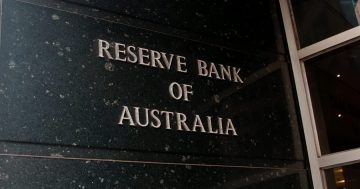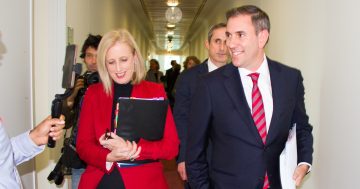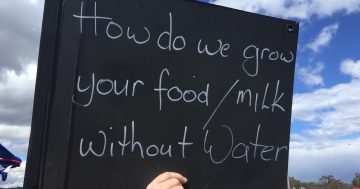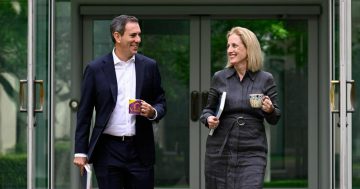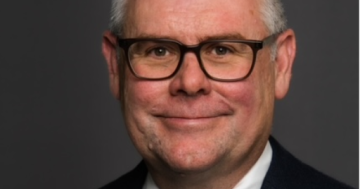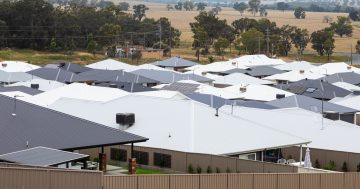Gareth Hutchens* says Australians are in for continued interest rate rises.
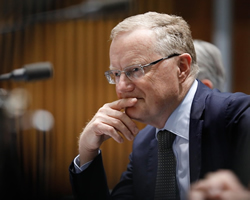 Reserve Bank governor Philip Lowe says he will keep lifting interest rates but the pace will soon slow down and he is confident the economy can absorb the rises.
Reserve Bank governor Philip Lowe says he will keep lifting interest rates but the pace will soon slow down and he is confident the economy can absorb the rises.
While Mr Lowe repeated recent statements hinting strongly that the pace of interest rate increases would soon slow from 0.5 of a percentage point each month, he emphasised that the cash rate had further to rise from the current level.
“[At] 2.35 [per cent], I think the rate is still too low,” Mr Lowe told the House of Representatives Standing Committee on Economics in Canberra.
He added that, over the longer term, the cash rate “should at least average the mid point of the inflation target”, which is 2.5 per cent, if not be a bit higher.
Mr Lowe said an average interest rate of about 3 per cent was “possible”.
“I think we’ll cycle around some number between 2.5 and 3.5 [per cent].”
Property prices to keep falling
Mr Lowe said he “wouldn’t be surprised” if property prices fell 10 per cent in this cycle.
But five months ago, the RBA’s Financial Stability Review said the bank’s modelling suggested that a 2 percentage point increase in the cash rate target would see property prices falling by 15 per cent.
At the time, the cash rate target was 0.1 per cent and it is now 2.35 per cent, and Mr Lowe plans to raise the rate even more in coming months.
“Prices went up 25 per cent over the past two years, [a] very big increase,” he said.
“It would not surprise me — and this is not a forecast — it would not surprise me if prices came down by a cumulative 10 per cent.
“And, even if they did that, they’re still up 15 per cent over three years.
We don’t want to forecast housing prices, because it’s very, very difficult to do, but as interest rates rise further, and they will rise further, I’d expect more heat to come out of the housing market and prices to come down further.”
He added that it was inevitable that people would complain whatever happened in the housing market.
“As a society we’re either complaining prices are going up or going down.”
High property prices not the RBA’s fault
Continuing on the topic of property prices, Mr Lowe said the RBA was not to blame for the lack of affordable housing in Australia.
He said the problem had to do with high land prices.
He said high land prices were embedded in Australia’s property prices, and land prices were expensive for structural reasons, such as planning and zoning decisions, lack of investment in transport infrastructure, certain taxation policies, and peoples’ preferences to live in less dense neighbourhoods.
He said when the RBA lifted rates up or down it affected property prices a lot in the short term, but did those structural factors were more important in the long run.
“The fact that Australians have to pay high prices for housing isn’t anything to do with the Reserve Bank over a long period of time,” he said.
“It’s the choices we’ve made as a society that have given us high housing prices.”
He said you could see what he means by looking at the United States.
“In parts of the US, [where] interest rates have been lower than they were here, housing prices are much lower,” he said.
“Because as a society, they’ve made different choices about where they live, investment in transport, and taxation.
“It’s the choices we’ve made as a people, even though interest rates have influenced the cycle, [and] the central bank can’t do anything about [it].”
He said, speaking personally and not as the RBA governor, he thinks it would be better for Australia if the nation made different choices to produce a lower average level of housing prices so more people could afford a property and would not have to borrow so much.
Global recession threat
However, he is concerned the flagged large rate increases in the United States will push the US into recession, which will make it harder for Australia to avoid a serious downturn.
“The outlook for the global economy next year is quite weak,” he said.
“And if it weakens further from our current forecast, it’ll be difficult for us to navigate this narrow path of getting inflation down while having our economy continue to grow reasonably well.”
Mr Lowe said the situation in the United States economy was very different to Australia’s.
He said the US Federal Reserve wanted to slow the US economy down because wages were growing at an annual pace of 6 per cent over there and it was making it very difficult to bring inflation down.
He said inflation was much higher in the US than it was in Australia, and the US Fed wanted to make interest rates deliberately restrictive to prevent a wage-price spiral occurring.
But that could have repercussions for Australia, he warned, because if the world’s largest economy fell into recession it would impact the growth rate of the global economy.
The World Bank has warned that there is a real and rising risk of a global recession amid soaring inflation and interest rates.
Household savings have been unequal
The RBA has frequently pointed to the fact that Australian households accumulated more than $270 billion in excess savings during the pandemic.
It has repeatedly said those savings will provide a financial buffer for households to cope with rising interest rates and a slowing economy this year and next.
But senior RBA official Brad Jones admitted to the committee that the distribution of those savings had been very uneven.
“The numbers that we monitor suggest that about 80 per cent of that extra $270 billion has gone to the top 40 per cent of households by income,” he said.
“Most of the run-up in excess savings in the pandemic went to higher-income households in large part because [their] consumption of discretionary goods, their ability to travel, and these sorts of things were severely curtailed.”
He also said the aggregate increase in household net wealth in Australia during the pandemic had been around $3 trillion, which dwarfed the amount of excess savings that occurred.
A large part of that had to do with property price growth.
“Obviously a fair chunk of that has gone to higher income households,” he added.
*Gareth Hutchens is a business and economics reporter based in Canberra.
This article first appeared at abc.net.au.


